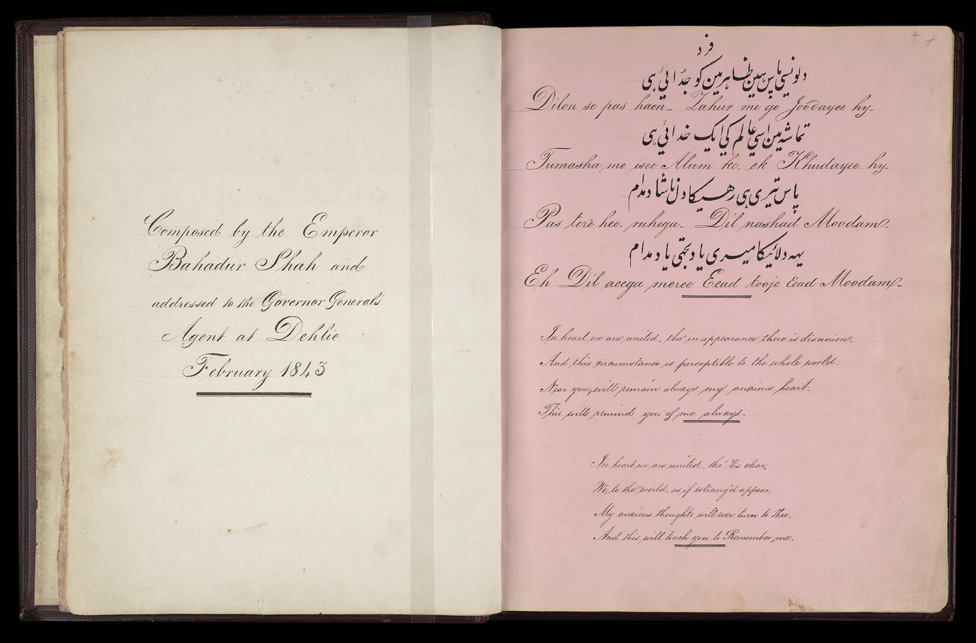FWP:
SETS == LIST
Solomon was an Islamically-sanctioned king who is described in many places in the Qur'an; by tradition he also had a special ring of power that enabled him to command the Jinns; and he knew the language of animals, so that he could use them as messengers. Thus he was superior in several points to ordinary kings.
The second line is really nothing but a name list of such 'ordinary' kings, in this case a set from the Shah-namah. They are not Islamically-sanctioned, and their magic (e.g., the Cup of Jamshid) does not come from (officially) divine sources.
The pleasure of the verse is the rush of names in the second line-- a line that consists of almost nothing but a string of names. But what names! This particular string of names can't help but evoke the world of the Shah-namah-- a well-known, compelling, cherished world of story, painting, and poetry. Can such a world really be so easily devalued? Or is Ghalib simply being mischievous here, and pretending to compliment his own king while actually poking fun at him?
For Bahadur Shah is of course an elderly British pensioner, with a domain hardly larger than the Red Fort itself; his only source of power and wealth is the good pleasure of the East India Company. This ghazal was composed in 1853, when Zauq was still the royal Ustad (a position Ghalib didn't acquire until Zauq's death in 1854), so Ghalib had good cause both to flatter the king, and perhaps even to needle him a bit (why not a deft little thorn or two among the roses?).
After all, in the verse the King is declared to have no points of comparison with all the 'ordinary' kings (the ones with whom he could most plausibly be compared). Any hearer of this verse in 1853 would realize that beneath the hyperbole, he indeed couldn't be compared to them-- because they were powerful reigning monarchs, while Bahadur Shah was a helpless puppet. But the verse's official reason for rejecting the comparison is apparently that he's so far superior to them that he's like Solomon in his glory-- a simile so extravagant and so richly ironic that surely the tongue-in-cheek-ness of it couldn't be missed. Ghalib has depicted Bahadur Shah as either Solomon, or no king at all. It's a witty and almost cruelly clever tactic. It's also conveniently irreproachable-- on what grounds could the King object?
For another double-edged verse of ostensible 'praise' to the King, see {121,8}.
While Ghalib prudently flattered the King, the King prudently flattered the Governor General's Agent at Delhi:

Nazm:
That is, all these are among the infidels [kāfir]. (129)
== Nazm page 129